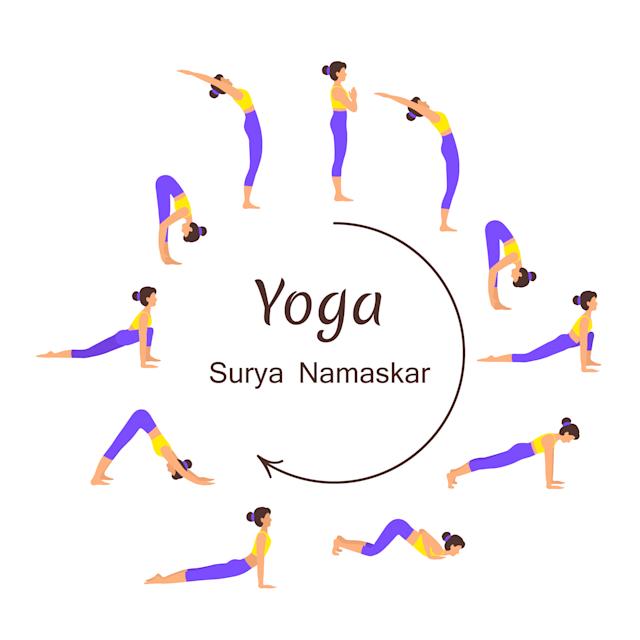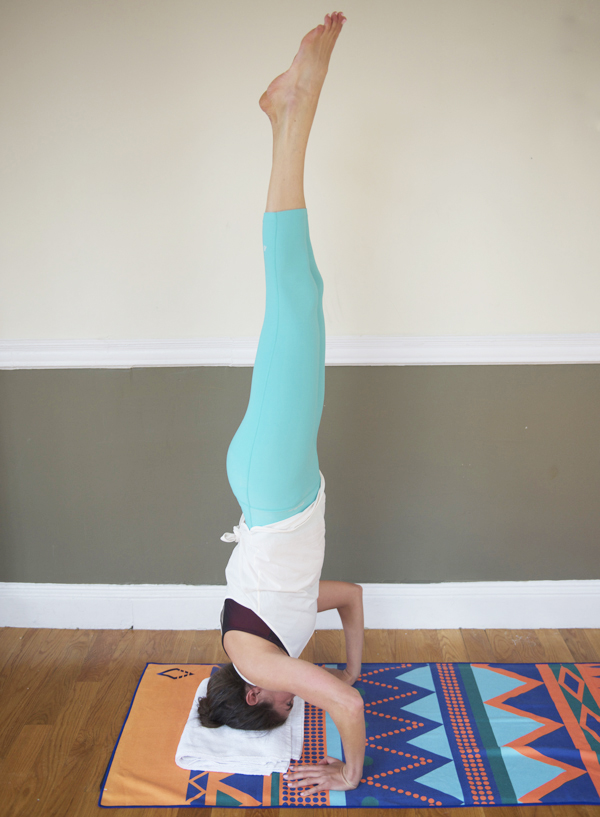
There are many benefits to headstands. They can not only be a good core exercise, but they can also increase nutrients delivery to your hair. These poses also stimulate pituitary cells, which help regulate hormones. Keep reading to learn how to master this challenging posture! Here are some tips to make it easy! Learn how to do headstands correctly. After mastering this pose, you will be able to try other variations.
Inversions are good for the whole core
Headstands are an inversion that requires your whole core to hold your body still. Inversions are more stable when your core muscles strengthen. These exercises strengthen your core muscles while strengthening your shoulders and back, which will help you invert. These poses will help you combat the 'techneck,' which is a common problem in modern society.
When performed correctly, headstands can give your core an extra boost and help you improve your balance. Headstand inversions strengthen your shoulders as well as your upper back. This is essential for proper exiting. Proper exiting requires you to pull your shoulders down and straighten both legs simultaneously. Your legs should extend up at the same time, in line with your shoulders and hips. They can be challenging, so be sure to practice with an instructor before attempting them yourself.
They improve nutrient delivery to hair follicles
Headstands increase blood flow and digestion. They also stimulate the pituitary gland which regulates digestion. These changes ensure that your hair follicles receive the nutrients they need in order to thrive. This ideal state of health can be achieved by regular practice of headstands. Headstands can help you if your hair is thinning.

This simple headstand increases blood flow to your head and follicles which results in healthier hair. You can also reverse gravity's effects on your digestive system, which improves digestion. Breathe deeply while you are in the headstand to increase blood flow to the hair follicles. Headstands can improve skin texture and reduce the risk of developing acne. Headstands are a great way to prevent baldness, and bring back grey hair.
They stimulate the pituitary.
Supported headstands increase brain blood flow. This increases endorphin production. These hormones help us fight depression. Yoga poses improve blood circulation, especially to the spine and the head. They also encourage deep diaphragmatic and diaphragmatic breathes. These benefits are believed to have a profound effect on reducing anxiety and boosting the immune system.
The adrenal glands are drained of cortisol by blood flowing while you are doing a headstand. Cortisol (the hormone responsible for stress) is produced when the body is under pressure, or when driving in heavy traffic. Headstands improve overall health as well as hair growth. This is a crucial aspect of healthy nutrition. Headstands can increase energy and digestive fire, as well as improve bowel function.
They relieve low-back pain
Although headstands' benefits aren't well-known yet, it is believed that they can relieve low-back discomfort. Inversions relieve pressure on the spinal discs in the lumbar area and nearby muscles. Inversion tables can be a time-consuming exercise that results in a decrease in strength. It is important to practice a headstand slowly and to develop a comfortable breathing technique. Begin with a handstand/forearm stand and then work your way up to a few minutes.
Try a headstand by first looking down at your feet. Keep your ears up. Keep your hands flat against the wall, and your lower back near your sternum. In addition, lift your kneecaps up and press your heels into the floor. A bolster or small pillow can be used to maintain your back and shoulders straight. To lift your sternum, you can also lean your thighbones further back into your legs.
They can improve your mood

Headstands won't directly improve your mood, but they can be a great way to get a good workout and a healthy one at that. Not only do they strengthen the arms, shoulders, and core, but they also increase blood flow to the brain, which in turn releases hormones that improve mood. Headstands, when combined with focused breathing, can reduce stress, depression, digestion, and increase energy. It will be amazing how quickly these poses can improve your mood.
Headstands can be used to combat mood swings, in addition to the physical benefits. A study published in a journal about yoga showed that headstands helped to calm the mind and alleviate stress. The posture also increases creativity in yogis, who are more likely to engage in creative projects. Headstands have many other benefits.
FAQ
What affects my mental health on my relationships and friendships?
Your mental health can have a profound impact on your daily life. It can impact your ability to function well at home, school and work. It can be difficult to build meaningful relationships due to mental health issues.
When you're dealing with a mental health condition, it's easy to isolate yourself from others. You might avoid social situations or feel unworthy because no one understands.
It's important to remember, however, that people want to be with you. They just need to learn how to approach and approach you.
Talking to others about your feelings can help you connect with them. Tell them how you're feeling and ask them for their advice.
How can I avoid mental health issues in the future?
It's not always easy to prevent mental illness. Here are some things to keep in your mind.
-
Don't drink alcohol. You can have a negative effect on your mood and increase your chance of getting depressed.
-
Avoid using drugs. Drugs can affect your brain chemistry and make you feel worse.
-
Sleep enough. You can feel anxious or depressed if you don't get enough sleep.
-
Exercise regularly. Exercise releases endorphins which can make you happy.
-
Eat healthy foods. Eating junk food can make you feel sluggish and unhappy.
-
Spend quality time with those you love. Spending time with those you love can improve your mood.
-
Have fun. Have fun with your life.
-
It is important to take breaks from social networking. Social media sites can make you feel lonely and isolated.
-
Take care of yourself. Treat yourself nicely, even if you aren't feeling great.
-
Ask for help. If you're having trouble coping, then ask for help. Talking to a family member or friend can be helpful.
-
Remember, it's OK to cry. The act of crying helps relieve stress and tension. It doesn't necessarily signify that something bad has happened.
-
Keep busy. Do something that you love.
-
Make sure you have good hygiene. Bad hygiene can make it difficult to feel attractive and clean.
-
Stay connected. Connecting with others will help you stay positive.
-
Learn how relax. Meditation and yoga can be helpful in reducing stress.
-
Find meaning in what you do. Find meaning in your hobby or work can bring you fulfillment.
-
Keep your eyes on the present moment. Concentrate on the present moment and you won't be so worried about the distant future.
-
Set goals. Goal setting can help you be motivated to reach your goals.
-
Do something nice for yourself. Doing something nice for yourself can boost your self-esteem.
-
Practice gratitude. Gratitude is a way to be grateful for all the good in your daily life.
-
Volunteer. Volunteering can provide a rewarding way to spend time with friends and make an impact on the world.
-
Give back. Giving back can help you feel fulfilled.
-
Be aware of warning signs. Don't be afraid to ask for help if your behavior changes.
Why is students' mental health important?
Students need to feel good about their mental health in order to be able focus on school and succeed academically. If you don't feel good, you won't be able to perform well in school. Students with depression tend to skip class, which can lead students to have poor grades. This can lead to dropping out from high school or college.
If you're struggling with depression, you should speak to your parents or teachers. They can help you get all the support you need.
It is important to understand that not everyone with depression needs medication. Talk therapy is an effective treatment for many people. A counselor is a great option for anyone who wants to seek help.
What is the impact of mental health on our daily lives?
Mental illness affects everyone at some point in his life. The difference between individuals with mental illness or others is the fact they don’t seek treatment. Talk to someone about something you are feeling. There are many ways to deal with depression, anxiety, stress, etc., such as therapy, medication, exercise, diet, meditation, and other methods.
Statistics
- Similarly, for positive mental health, there is likely to be substantial agreement about some typical components (e.g., resilience to stress) 6, and controversy about more atypical components (e.g., career consolidation). (ncbi.nlm.nih.gov)
- Appropriate nutrition and exercise are likely among the most efficacious and cost-effective positive mental health interventions. (ncbi.nlm.nih.gov)
- Neuropsychiatric diseases are the leading cause of death and disability in the U.S., accounting for 18.7 percent of all years of potential lifespan loss and premature mortality.
- In any given year, an estimated 18.1% (43.6 million) of U.S. adults ages 18 years or older suffered from any mental illness, and 4.2% (9.8 million) (healthypeople.gov)
- According to the National Alliance of Mental Illness (NAMI), one in five Americans experiences mental health issues which translates to more than 40 million adults a year. (doctorondemand.com)
External Links
How To
How to Improve Your Memory
Memory is one of those things that everyone wants to be able to remember better. But unfortunately, memory loss is something that happens to us all at some point in time. In fact, more Americans than 65 years old suffer from dementia.
No matter if you are dealing with Alzheimer's disease, dementia or any other form of cognitive decline, there are many options to improve your memory. Here are three simple steps to take right away:
-
Consume More Fruits & Vegetables. Fruit and vegetables contain antioxidants, vitamins, minerals, fiber, and phytochemicals that boost brain function. They also contain essential nutrients that protect against neurological disorders.
-
Get Enough Sleep. Low sleep quality has been linked both to memory loss, poor concentration, and memory loss. Make sure you get seven to eight hours of restful sleep each night.
-
Take a walk. Walking increases blood flow to the brain which can improve memory. Walking helps you look slimmer, healthier, and more energetic.